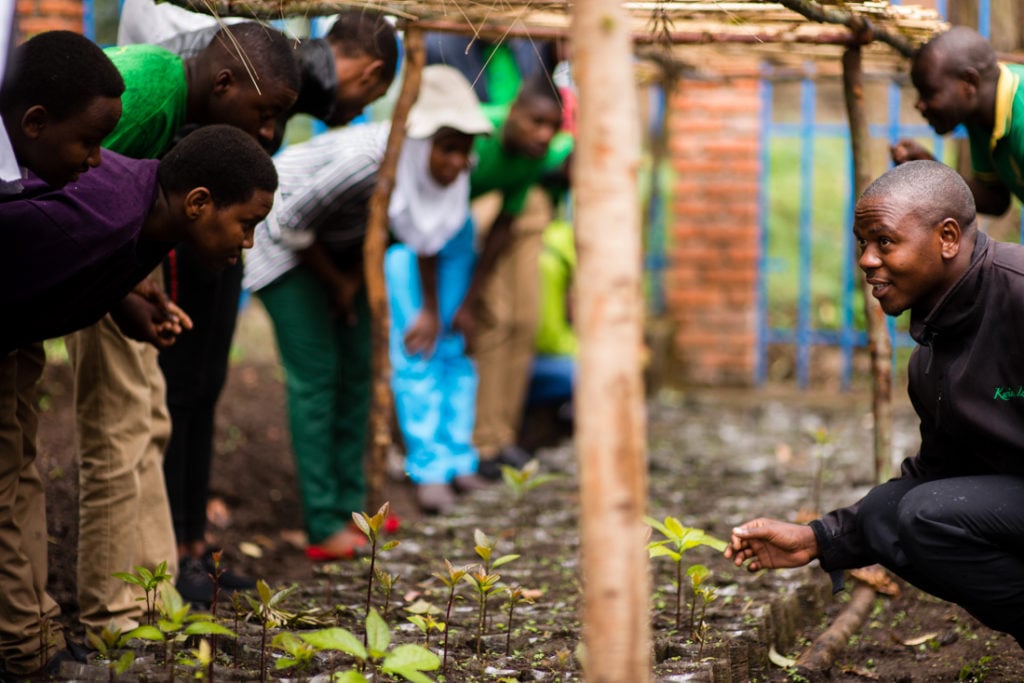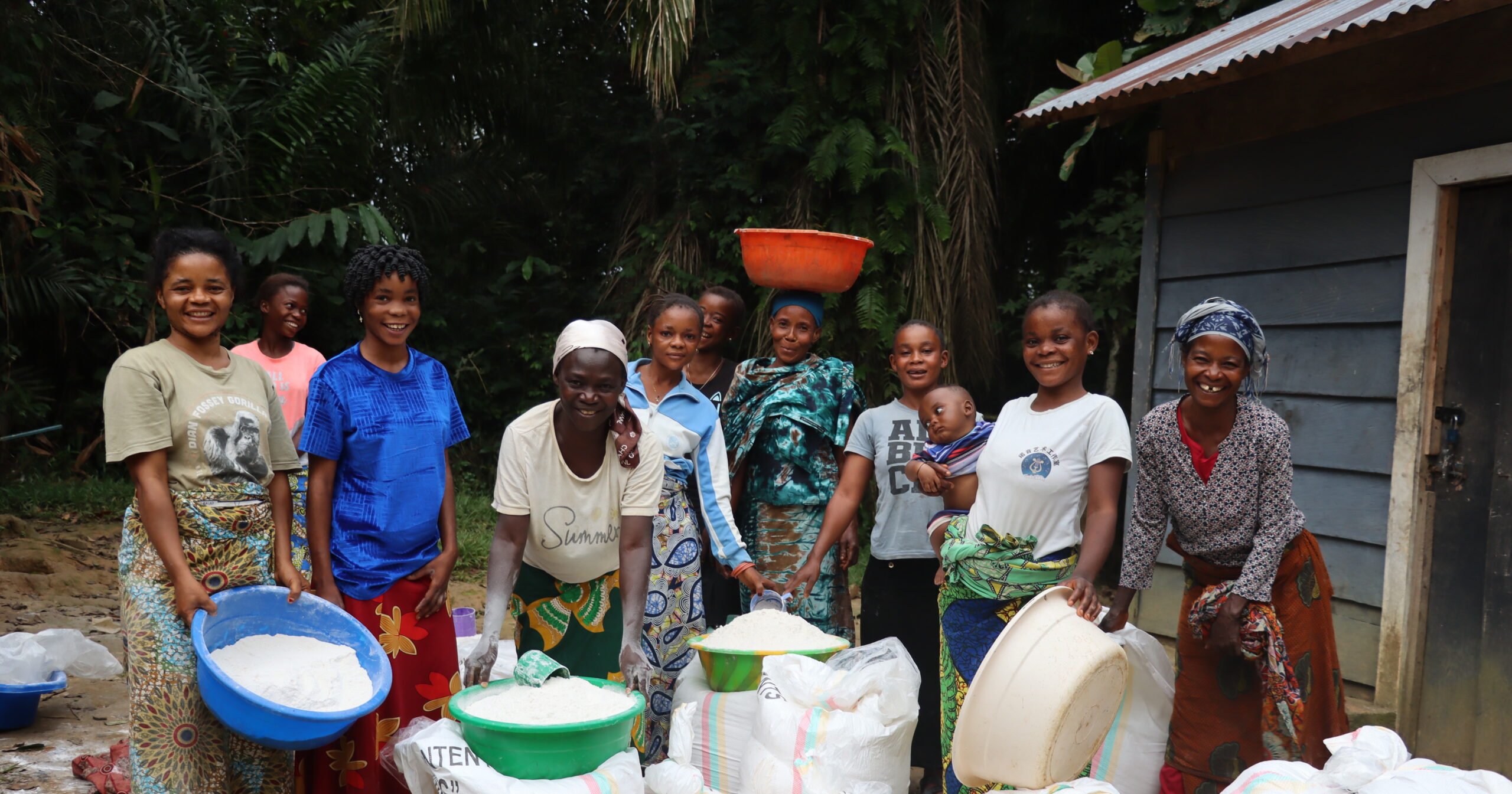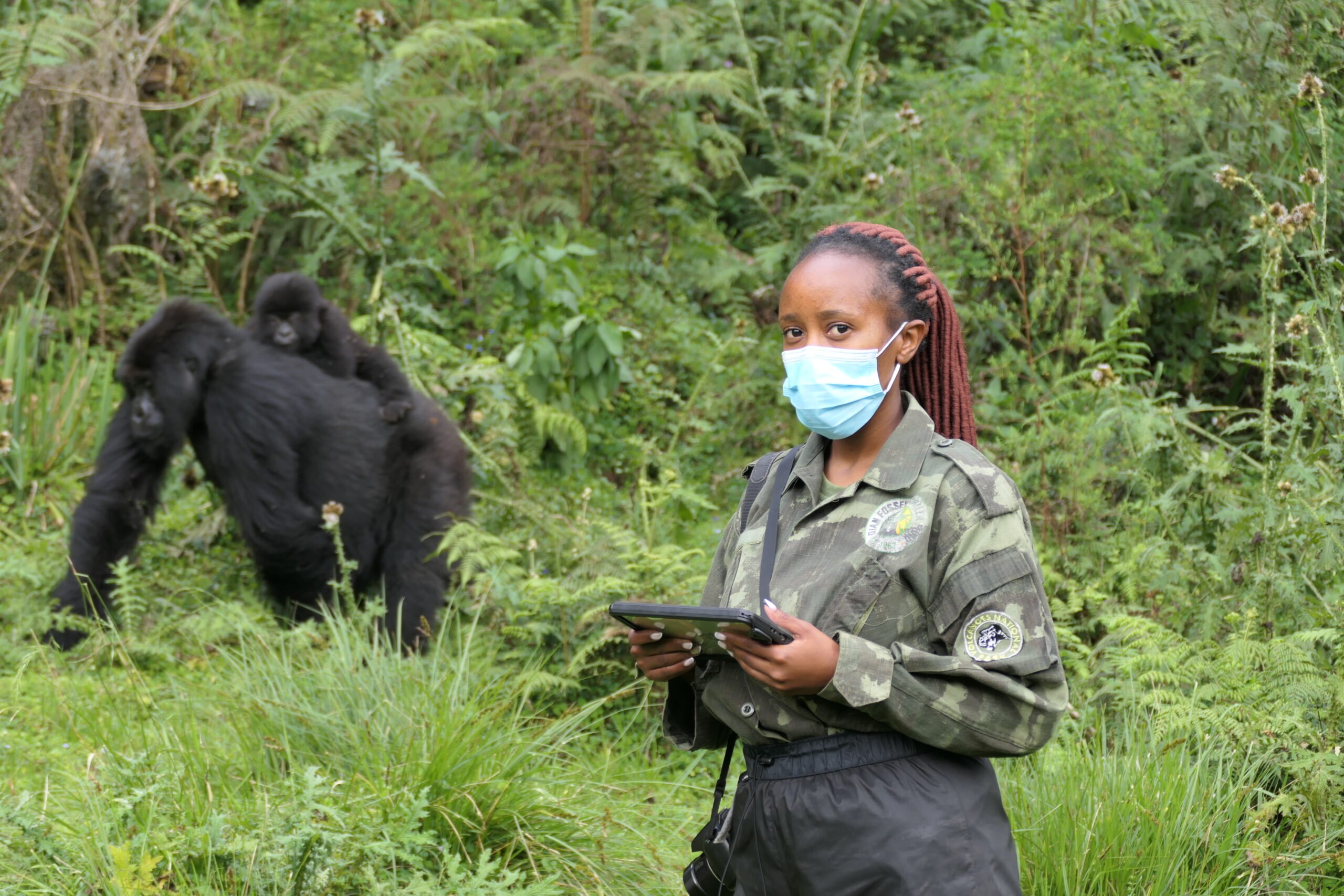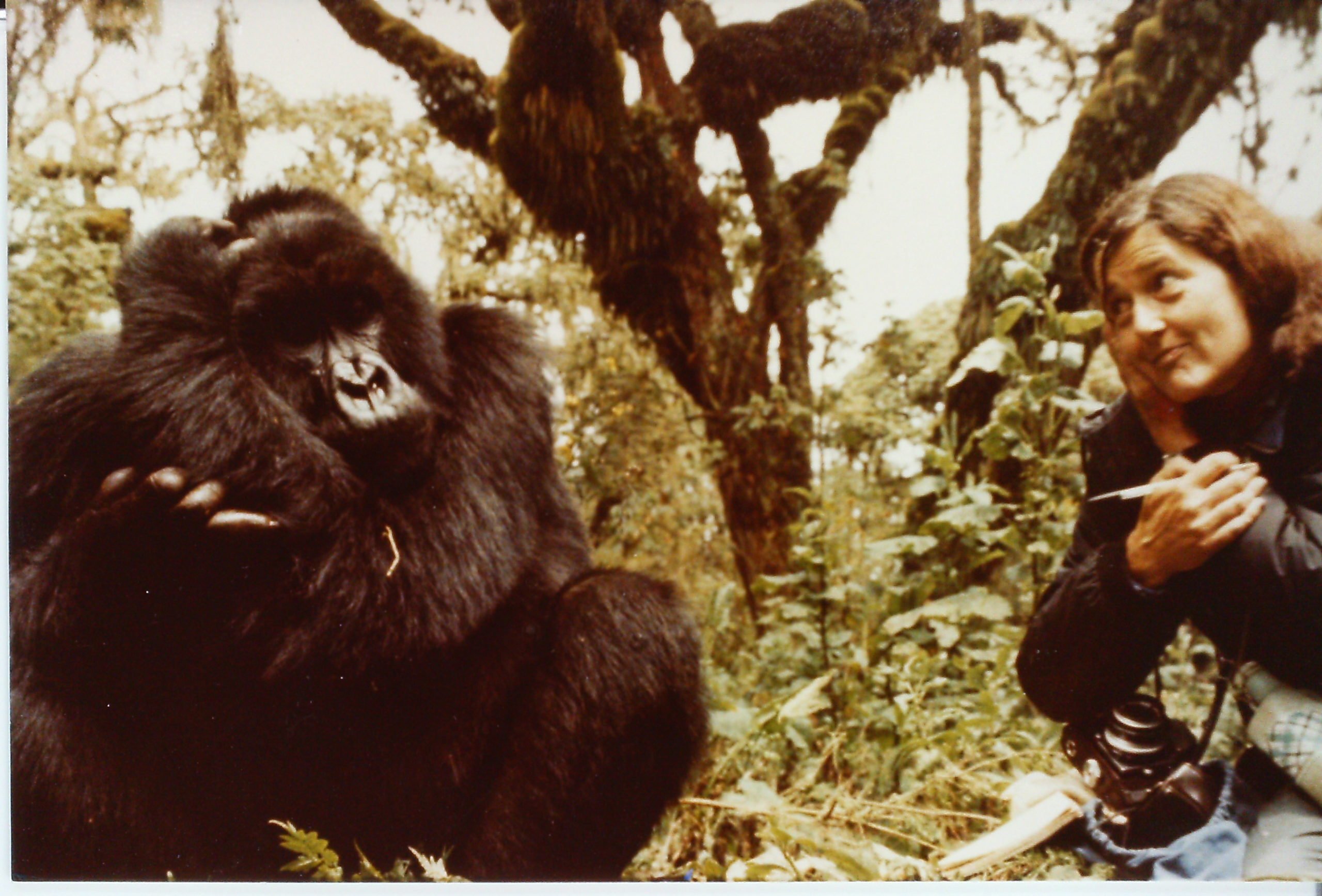The Dian Fossey Gorilla Fund believes that providing educational opportunities for local communities is is an integral part of successful and sustainable conservation and we do this at many levels where we work in Africa. In Rwanda, we work with primary and secondary schools, as well as at the university level, bringing conservation education programs to students of all ages.

One program, called “Citizen Science,” is designed especially for secondary school students and teachers, and includes environmental clubs, class work and lectures on the scientific process, creating school gardens, and actual field research design and data collection, as well as data entry and preliminary analysis. Each year, students work on different conservation research topics, such as migratory birds, butterflies, and climate change.

The program started in 2010 with seven secondary schools and has now been expanded to two additional schools, located near the park where the mountain gorillas live. It is overseen by our Conservation Education Manager, Maurice Ngiramahoro.

Birds, trees, cabbages and more!
This year, the Citizen Science training brought 27 environmental club members from the nine schools for training and field work around the park. The activities included:
- A workshop on bird and butterfly identification, along with instruction on collecting data for later analysis.
- Instruction on school garden maintenance, an important program involving school feeding implemented by the Rwandan government. Since 2015, the gardens in the schools we help were able to help feed 1,718 people, including 1,650 students and 68 teachers with the vegetables harvested.
- Training on tree planting and setting up tree nurseries at the schools.
- Field visits to a pilot tree nursery and to the school garden at Rushubi school, which has been very successful growing cabbages, feeding 300 students and even generating income by selling excess vegetables to neighboring schools.
Throughout the year, the Citizen Science program will continue with additional activities, including establishing tree nurseries in the schools, furthering a mushroom-growing project and continuing plantings in all the school gardens. In March, a total of 70 kilograms of mushrooms were harvested at one of the schools, providing protein for all the students and generating income for continued activities of the school’s environmental club.









